The Electronic Information Portal of the Ministry of Science and Technology respectfully introduces the original text of the General Secretary's Conclusion Notice.
On September 4, 2025, General Secretary To Lam worked with the Vietnam Atomic Energy Institute at the Institute's headquarters. Attending the working session were Prime Minister Pham Minh Chinh; Politburo members: Nguyen Duy Ngoc, Chairman of the Central Inspection Commission, Deputy Head of the Central Steering Committee on Science and Technology Development, Innovation and Digital Transformation; Luong Tam Quang, Minister of Public Security; Le Minh Hoan, Party Central Committee member, Vice Chairman of the National Assembly; representatives of the leaders of the agencies: Central Organization Committee; Central Propaganda and Education Committee; Central Policy and Strategy Committee; Central Party Office; Ministry of National Defense; Ministry of Home Affairs, Ministry of Finance, Ministry of Education and Training, Ministry of Science and Technology, Ministry of Industry and Trade, Ministry of Agriculture and Environment; representatives of a number of scientists; Chairman of the Vietnam National Energy Industry Group; leaders, former leaders of the Institute, heads of units under the Vietnam Atomic Energy Institute.
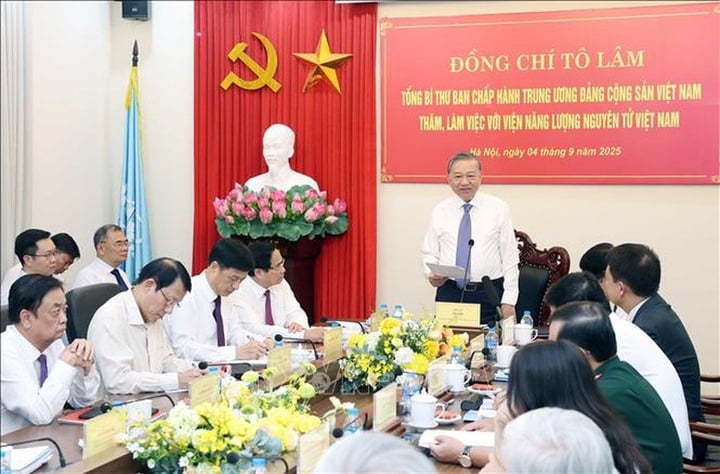
General Secretary To Lam and the Central Working Delegation visited and worked at the Vietnam Atomic Energy Institute (Ministry of Science and Technology) on the results of its activities and development orientations in the new period (Photo: VNA).
After listening to the report of the Vietnam Atomic Energy Institute, the opinions of the Prime Minister and the delegates, the General Secretary concluded as follows:
In recent years, the Party and the State have issued many policies and guidelines to prepare scientific premises for the use of atomic energy after 2000 and prepare conditions for the construction of nuclear power plants after 2015; the policy of restarting the Ninh Thuan nuclear power project and the nuclear power research program in Vietnam, in which many breakthrough mechanisms and policies have been issued to accelerate the project implementation progress, such as Resolution No. 57-NQ/TW of the Politburo on breakthroughs in science and technology development, innovation and national digital transformation, Resolution No. 70-NQ/TW of the Politburo on ensuring energy security until 2030, with a vision to 2045.
The atomic energy sector also has many important contributions in the fields of health, agriculture, industry, and environmental protection. The Vietnam Atomic Energy Institute has many achievements in human resource training; advising and proposing investment in the construction of a number of key projects in the atomic energy sector; actively advising and building a legal system, standards, and regulations according to international practices; regulatory agencies and environmental radiation monitoring networks have been gradually consolidated and developed.
The General Secretary acknowledged, commended and highly appreciated the contributions of generations of cadres, leaders, scientists and workers of the Institute over the past nearly 50 years to the development of Vietnam's Atomic Energy industry.
However, Vietnam's atomic energy sector still has many limitations: There are no specific mechanisms and policies to facilitate the development of the atomic energy sector; the investment budget for the atomic energy sector has not met the requirements, is scattered and ineffective; the nuclear safety and security infrastructure has not met the requirements of international standards; laboratories are outdated and seriously degraded; the implementation of some important projects of the sector is slow. The capacity to independently analyze the safety of nuclear radiation, the capacity to measure - certify and the supply chain is still limited; the computational code system has not been completed; domestic and cross-border scenario exercises are not regular. The organizational model of the Atomic Energy Institute is still inadequate, not fully promoting the role, tasks and development potential of the Institute. The capacity, qualifications, infrastructure and human resources of the Department of Radiation and Nuclear Safety have not met the requirements.
The current context of nuclear energy development in our country is posing many challenges as the world is entering a new stage of development of nuclear energy, especially nuclear power. Many countries are restarting or expanding nuclear power programs with advanced, safer, environmentally friendly and highly efficient technology. The US, EU, France, UK... continue to invest and support the construction of many new nuclear power plants, bringing advanced nuclear power technology into the Net-Zero Industry Act. Some ASEAN countries such as Indonesia, Philippines, Singapore, Thailand, Malaysia, Cambodia, Laos, Myanmar are promoting the development of nuclear technology with many nuclear power plants being researched and built; actively cooperating with China and Russia to develop human resources and build a legal framework for nuclear energy. New generations of reactors, especially small modular reactors (SMRs) and micro reactors, are creating a trend of greater flexibility and lower costs associated with the need to ensure energy security as well as the goal of carbon neutrality. Restarting the nuclear power program places high demands on nuclear security, location, geological and hydrological assessment, earthquake and tsunami assessment, waste management, civil liability and insurance, and independent assessment, licensing and monitoring capacity that must comply with international standards.
From the above situation, the General Secretary requested the need to unify a number of orientations and strategies throughout: Absolutely do not trade safety for progress or scale; firmly build a safety culture as the foundation, at the same time develop endogenous capacity to gradually master nuclear technology; international cooperation on the principles of co-design, co-manufacture, co-operation, co-management. Development and application of atomic energy must be cautious, step by step, in accordance with socio-economic conditions and international practices, with strategic vision, steadfastness and a comprehensive approach from institutions, human resources, infrastructure, and technology.
The General Secretary requested the following key directions and tasks to be implemented:
Firstly, identifying the development of nuclear energy as a long-term strategic goal, of crucial importance in socio-economic development, ensuring national defense and security, contributing to enhancing the strength, position and stature of the nation. Building and developing nuclear power must ensure absolute safety for people, the environment and society, strictly following the guidelines of the International Atomic Energy Agency.
Second, continue to improve mechanisms and policies to create favorable conditions for the development of atomic energy in accordance with the new situation. Research and reorganize the model of the Vietnam Atomic Energy Institute to meet new development requirements in the direction of: Separating the state management function of the Ministry of Science and Technology from the function of organizing science and technology careers of the Vietnam Atomic Energy Institute; proposing the Government Party Committee to lead and direct the research on the model of merging the Atomic Energy Institute and the Institute of Physics (under the Vietnam Academy of Science and Technology); or research the model of the Vietnam Atomic Energy Institute under the Vietnam National Energy and Industry Group. The Vietnam Atomic Energy Institute needs to do well the task of training high-quality human resources, introducing experts and scientists in the field of nuclear radiation safety; playing a core role in research, application of science, technology, and handling nuclear incidents. Clearly define the functions and tasks and enhance the capacity, potential and coordination ability on nuclear radiation safety of the Department of Radiation and Nuclear Safety.
Third, increase investment in infrastructure for scientific and technological research in the field of atomic energy. Speed up the construction and completion of the Nuclear Science and Technology Research Center Project in Dong Nai to ensure safety and efficiency, and put it into operation by 2030 at the latest; upgrade the Da Lat nuclear research reactor; gradually invest, upgrade or combine investments in key national laboratories to serve research and testing. Have mechanisms and policies for public-private cooperation in scientific and technological research in the field of atomic energy; strongly and effectively apply advanced technology and expand the environmental radiation monitoring network, connect real-time data, establish a set of background radiation data at and around the nuclear power plant; ensure connectivity of the environmental radiation monitoring network, digitize the source - equipment database, perfect the dispersion model and publish transparent and controlled data to increase people's trust; Forming a map of radioactive sources and artificial intelligence (AI) tools to help assess risks in each locality. Issuing a National Program on nuclear science and technology research; a program to research and apply nuclear power generation technology using molten salt method, thorium-fueled nuclear reactors (MSR); gradually mastering and localizing small modular reactor (SMR) technology and advanced generation IV reactors; researching, designing, manufacturing and gradually mastering nuclear fuel production technology, equipment and machinery in atomic energy applications, monitoring and ensuring nuclear safety; researching towards mastering rare earth selection, separation and processing technology to serve the development of rare earth, uranium, titanium and tungsten industries.
Fourth, have breakthrough solutions to develop high-quality human resources to meet development requirements. Strengthen training, retraining, and professional development for staff, scientists, and engineers to meet task requirements; attract domestic and foreign experts to work in the field of atomic energy. Issue specific mechanisms and policies on salaries, allowances, and other support for those directly working in the field of atomic energy and nuclear radiation safety; have appropriate support policies for students and scientists when they are sent to research and study at atomic energy research organizations in advanced countries and traditional friends. Form and develop a number of prestigious Vietnamese scientific and technological research groups at international research organizations.
Fifth, cooperate more effectively and selectively with the International Atomic Energy Agency, prestigious institutes and research organizations in the world in scientific research, technology, human resource training, and nuclear regulations. Take advantage of and effectively use financial resources of international organizations. Timely follow the process of nuclear technology deployment of ASEAN countries to draw experience in implementing nuclear power projects in our country. Timely identify and take measures to respond to risks of environmental impact and nuclear safety when countries build and operate nuclear power plants.
Some proposals of the Vietnam Atomic Energy Institute are under the authority of the Government and the Ministry of Science and Technology. I request the Secretary of the Government Party Committee and the Prime Minister to direct the settlement within their authority; direct the Secretary of the Party Committee and the Minister of Science and Technology to seriously implement the direction of the Standing Secretariat in preparing the Project "Promoting the development and application of atomic energy for peaceful purposes to serve the country's development in the new period" to ensure progress and quality, and submit it to the Politburo for consideration and decision.
Source: https://mst.gov.vn/ket-luan-cua-tong-bi-thu-to-lam-tai-buoi-lam-viec-voi-vien-nang-luong-nguyen-tu-viet-nam-197250917202654786.htm



![[Photo] Editor-in-Chief of Nhan Dan Newspaper Le Quoc Minh received the working delegation of Pasaxon Newspaper](https://vphoto.vietnam.vn/thumb/1200x675/vietnam/resource/IMAGE/2025/9/23/da79369d8d2849318c3fe8e792f4ce16)

![[Photo] Prime Minister Pham Minh Chinh chairs the 14th meeting of the Steering Committee on IUU](https://vphoto.vietnam.vn/thumb/1200x675/vietnam/resource/IMAGE/2025/9/23/a5244e94b6dd49b3b52bbb92201c6986)



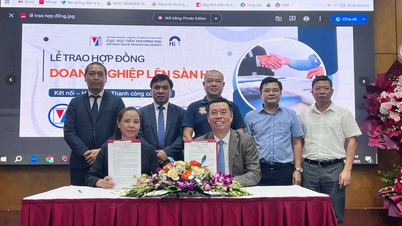










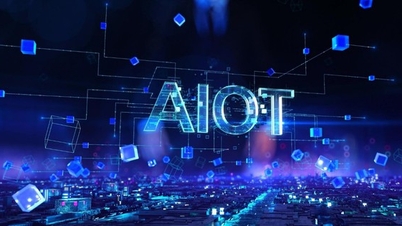




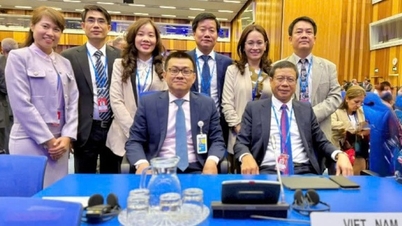
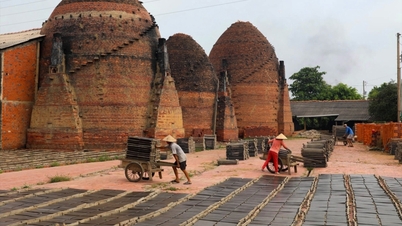
























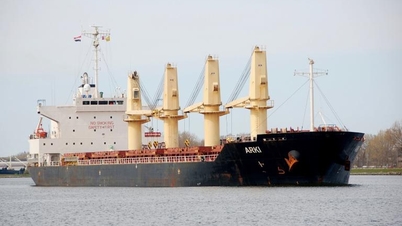




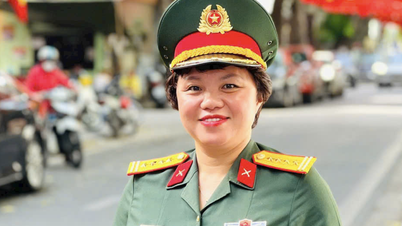





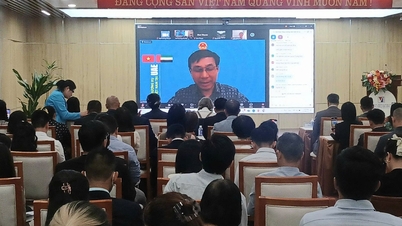
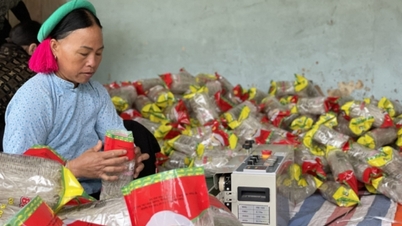



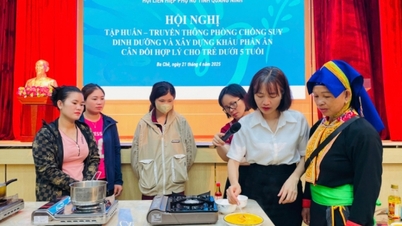




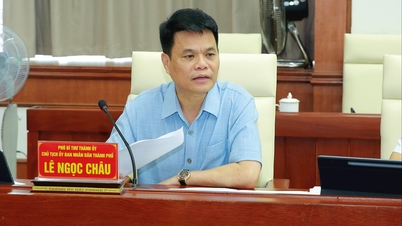








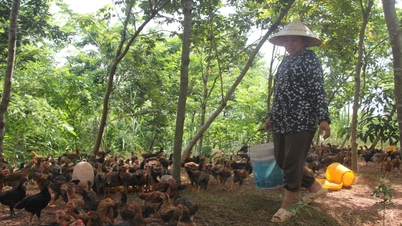







Comment (0)